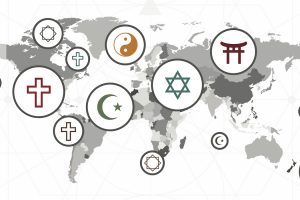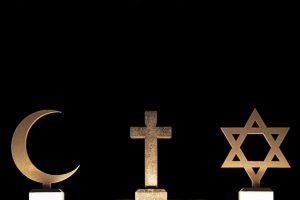
‘O ye who believe! fasting is prescribed for you, as it was prescribed for those before you, so that you may become righteous.’ [1]
Fasting has existed in some form in many world religions. The Review of Religions is pleased to publish a series of interviews about fasting with authentic voices from different faiths. Beliefs expressed in these articles are those of the individuals interviewed, to whom we are extremely grateful for sharing their very valuable insights.
Rabbi Dr. Margaret Jacobi has been the rabbi of Birmingham Progressive Synagogue since she was ordained in 1994. Before becoming a rabbi, she studied medicine and worked in medical research. She loves living in Birmingham, and the opportunities for interfaith dialogue it offers and is also engaged in social justice work.
Can you provide an overview of the Jewish faith?
Judaism traces its origins back to Abraham (Ibrahim) some four thousand years ago. The key early events in its history are the Exodus from slavery in Egypt and the giving of the Torah (Jewish teachings) at Mount Sinai. These meant that Judaism particularly emphasises our responsibilities to the poor and the stranger.
Judaism’s central belief is in One God, the Creator of us all, and this belief is declared in the Shema prayer, repeated twice every day. This leads to the belief that all human beings are brothers and sisters, created in the image of the Divine. The most important Jewish observance is the weekly Sabbath, a day of rest, contemplation and spiritual refreshment.
Does fasting take place in your faith tradition, and does it have a specific name?
There are various fasts in Judaism. The most important is Yom Kippur, the Day of Atonement (Lev. 23:26-32 and elsewhere). It is a day of repentance and atonement once a year, when we pray for forgiveness. Other fasts mark days of mourning, especially Tisha B’Av, the ninth of the Hebrew month of Av. Apart from Yom Kippur, the fasts are not all observed by Progressive/Liberal Jews.
When did the observance of fasting originate in your faith?
Yom Kippur is found in the Torah. The other fasts have post-biblical (second century CE onwards) origins.
Are there any rules for fasting in your faith?
Yom Kippur is a 25-hour fast, from dusk till sunset the following day. The other fasts start at dawn. No food or drink is permitted. Fasting does not start till the age of 12 (girls) or 13 (boys). If health will be endangered by fasting, then fasting is prohibited because the preservation of life takes precedence. Similarly, women who are pregnant or breast-feeding are exempted from fasting.
Why do you fast?
There are several reasons for fasting. It is a form of penitence; it encourages self-discipline; it allows us to focus on the spiritual; it awakens compassion and it reminds us of those who go hungry every day.
What are the benefits and challenges of fasting?
Fasting is demanding, but it can lead to greater spiritual awareness and a sense of closeness to the Divine.
Are there any diverse expressions relating to fasting in your faith tradition?
Yom Kippur is universally observed as the most important day of the Jewish year. The so-called minor fasts, which mark various historical events, are not usually observed by non-Orthodox Jews.
ENDNOTES
[1] The Holy Qur’an 2:184




Add Comment